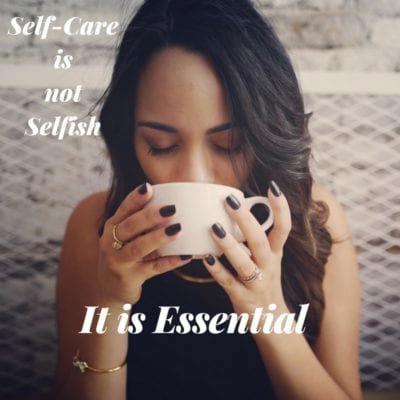Self-care is being self-aware about what you need in your life right now. While showing yourself love and compassion to help you get through each day being the best version of you possible.
Having a health promotion and mental health background I was well aware of how important it is to look after yourself both physically, mentally and emotionally. I know that self-care is not selfish, it is a necessity. I have posted numerous posts/tweets over the year about its importance. Yet I still found myself not taking my own advice and slipping back to old habits, when I should have been really looking after myself. So here is what I learnt about my experience of self-care recently:
- You have to check in with yourself
Life was busy for me, working part-time and growing my own business can take its toll. Especially while also trying to have a social life. It wasn’t until two months later that I realised I was neglecting my health and self-care. I kept ignoring the alarm bells going off and tried my best to keep functioning.
But our bodies force us to stop if we don’t listen to the warning signs sooner. Then you have no choice but to stop and listen.
Looking back at the alarm bells I was ignoring in hindsight, it was really clear that I wasn’t myself. While I’m great again, maybe it wouldn’t have taken me so long to recover if I had listened sooner. Maybe I would have been more compassionate to myself during that period rather than being my own worst enemy.
So, it is crucial that we are constantly checking in with ourselves asking what do I need right now?, How busy is the month ahead?, How stressed am I? What will trigger my stress? How can I plan my self-care to ensure I don’t run myself down? What support do I need support right now?
We need to have some “me time” and quietness to ourselves regularly where we can take time to reflect where we are right now and answer the questions above from our heart every single week.
- Give yourself permission to slow down
This is crucial, self-care needs to be a daily practice and we need to give permission to prioritise this. Once I stopped being in denial, I was able to re-evaluate what I could do to prioritise my rest and recharge my batteries. By giving myself permission to mind myself and recuperate it was one less battle in my mind; I then could put all my energy into getting better. I accepted what was happening and that it was ok to put work on hold while getting better as this was only a temporary setback.
So how do you give yourself permission to stop and prioritise yourself? Is it enough for you to tell yourself? Or do you need something more visual and give yourself a permission slip so that you can take time off? Is it a list of pros and cons that will help you see how important your well-being is? Can you prioritise yourself enough to realise that when you aren’t functioning at your best how can you be expected to consider even looking after others?
Your body and mind will be grateful to you for giving yourself permission to slow down and look after your own needs first, only then can you really look after those around you.
- Your environment is crucial
When working remotely or working for yourself, you often find you can work from home and it may be hard to have a dedicated work space. Working from home has its perks like staying in beside the fire in your pyjamas while everyone else is heading off in the cold but that novelty wears off too. One golden rule is that you should never bring your work into your bedroom. This space should be for relaxation only.
However, when I was sick and didn’t feel like leaving bed or could only focus on 4hrs work before needing a nap, I broke my cardinal rule and let bad habits creep in and felt justified because I wasn’t well. These bad habits can linger if unaware and it will affect your productivity as well as quality of sleep in the long-term. On the days where fatigue was very bad, I compromised that I could bring work in to my bedroom. However, I got very strict when finishing early so I had quality time to unwind before going to sleep.
Having a good evening routine where you take time to prepare for tomorrow, celebrate today and let the mind unwind before sleep is crucial to good self-care management.
Your home needs to be a sanctuary, a place of peace and rest; somewhere you look forward to coming home to. You should not dread coming home, if the situation is toxic it will actually make you more unwell. Your other environments can be a little harder to manage depending on your work situation, the kind of environment that is there or the commute to your job etc.
So, ask yourself what stresses you out in these environments and list one thing you can do to reduce your stress? Where can you compromise if you have to? This will help you get clarity and by having a plan of action it can keep you focused and allows us to reserve your energy for prioritising your self-care throughout the week.
- A good support network is a must
Quality over quantity is such an important principle when talking about a support network.
Thankfully I am truly blessed with the close family and friends I can count on. These are the ones who are brutally honest with you because your happiness matters to them. They are the ones who tell you don’t look well, do you need to see a doctor? Have you considered time off?, Saying they notice what things changed and that they are concerned as you aren’t not normally like this? . These are the ones there to call, to listen to you rant, a shoulder to cry on, to offer support and advice, they call over with your favourite treats etc. They help you get out to take your mind off things for a while. They have your back, they ensure that you are looking after yourself and make you face the hard truths while supporting you through the whole experience.
Knowing that you’ve got people in your corner, helps you face any challenge and that you will come through it. They know when to push, when to hold back and offer comfort and support. Having people like this means you will be reminded to look after yourself, to take your own advice and to practice managing what you can do now while adjusting so that some days are more productive than others. But if you are beating yourself up about “wasting” a day, they are quick to remind you, that it is not wasted as your body and mind are rested and that is more important right now.
So, having a good support network helps you feel supported no matter what curve ball life throws at you. They reinforce your choice to choose self-care during stressful times. Having a good support network helps you bounce back and cope with whatever cards you are dealt in life. Make a list of those in your support network and list the ways they support you and how grateful you are for having them in your life.
- Knowing you have options available
On a bad day I was reminded that your % of wellness = your % of success!!
This was a good timely reminder to me, that if my well-being levels were poor so would be my levels of productivity. So, depending on my levels of stress, will also depend on what activity will help me de-stress and feel recharged. If my stress levels are mild maybe a bit of pampering like getting my hair or nails done, or heading to movies with friends will be enough time out to relax and switch off.
If my stress levels are moderate I need to ensure my diet and exercise is monitored. Ensuring that I don’t eat junk food or make excuses for not going for my walks. As these are crucial to ensuring the stress doesn’t run me down due to poor choices. Then I may also need to call a friend to rant and help come up with advice or a different perspective. Or plan some fun activities and maybe even a break away to help recharge again.
If it is severe stress, I need to do all of the above. While also planning ahead and ensuring self-care is prioritised throughout the week. I also need to check in to see where else I need support. If it was something like a loss or grief or something traumatic I need to seek professional services to help me work through my emotional baggage.
Asking for support is a sign of strength, not a weakness. Seeking professional help and support will help me heal while ensuring the past does not hold me back from my future. To me it is more important for me to feel like I am able to cope with whatever life throws my way rather living in fear or with regrets.
One trick that I learnt during this time was the importance of scheduling my different self-care options into my diary. This allowed me to see how I was prioritising my self-care needs. I used coloured sticky notes so I could transfer it week to week which acted as a great reminder.
So list the different things that help you de-stress based on your level of stress. You can use the ones I mentioned above and keep trying to add to it. This will ensure you will have a good pool of resources to draw from. Thus ensuring that self-care is a priority no matter where or what the situation is.
So that was my learning in relation to my self-care experience over the last few months. If you can relate or would like to add tips of your own I would love to hear from you.


